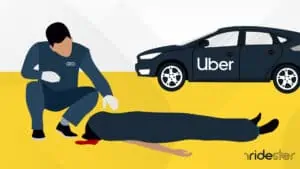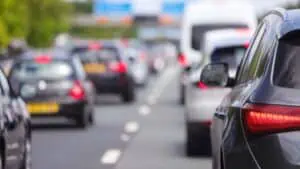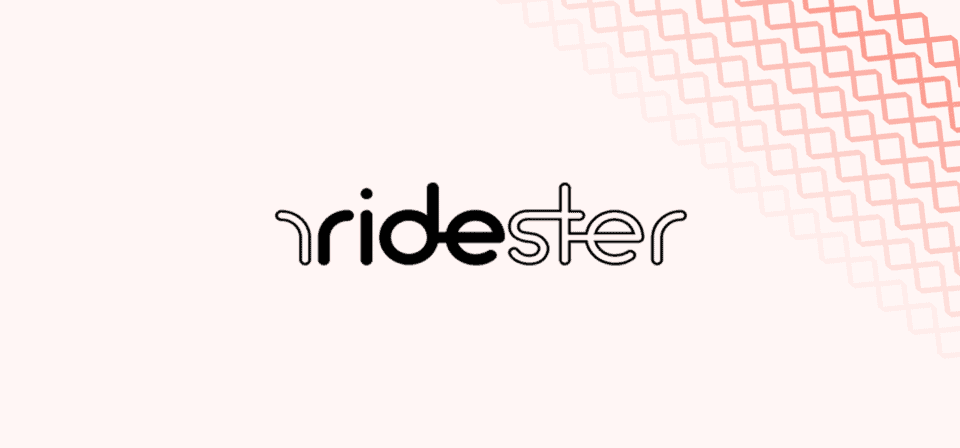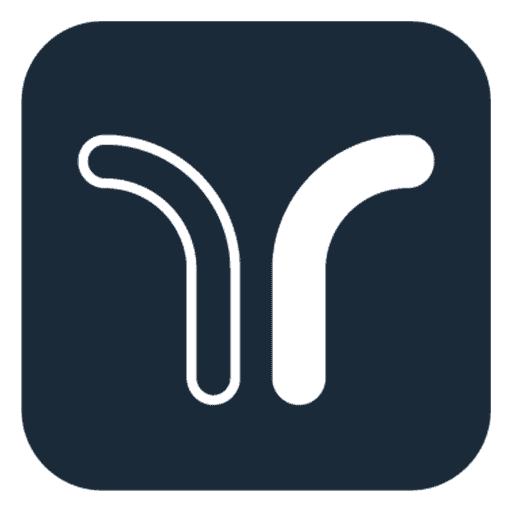Uber is purported to be working on a technology that would allow them to detect if passengers are drunk at the time when they summon a car.
CNN was the first to spot a new patent application from Uber that explores using artificial intelligence to identify drunk passengers. The patent application was published on May 31, 2018.
How Uber’s New Drunk Detection Would Work
According to CNN, the “patent application describes a system that learns how you typically use the Uber app, so that it can identify unusual behavior. The system relies on an algorithm to weigh a variety of factors, including:
- typos you make
- how precisely you click on links and buttons
- walking speed
- how long it takes you to request a ride
- how you hold your phone, whether you’re tilting it or not
- the time of day, and where a ride is requested from could also be considered. For instance, if you’re walking down a street at 1 a.m. on a Saturday in the hot nightlife area while clumsily typing, you’re probably not sober”
What Could Possibly Go Wrong!?
It’s hard to imagine anything possibly going wrong with this. No, I’m just kidding! It’s very easy to imagine! How many promises have we heard about really cool things software could do only to find out it does it only about 30% of the time?
A year or two ago Uber started tracking the driving performance of its drivers. They showed drivers on their app how they were doing as far as accelerating and braking goes. They rated drivers on smooth vs. rough accelerations and decelerations.
They got this information from the accelerometer and gyroscope on drivers’ phones and tablets, which is what picks up movement. They thought they had it all worked out but in reality, it was completely inaccurate.
I have days when I don’t have any rough starts or stops at all and yet it will record many. It may tell me out of 100 stops, I had 34 rough ones. Totally untrue!
When I’m driving for Uber I drive like a grandmother! Everything is super smooth. If it said I had two or three rough starts or stops I might believe them and just think the way they have it programmed to detect what’s rough is a little too sensitive.
I’ve also had days when I did have a rough stop or two and the next day the app would report that I had a perfect day with 0 rough stops and starts!
The bottom line is, I’m sure it picks up quiet accurately whatever it’s programmed to pick up. But what it is programmed to pick up is not the same thing a human would detect. It may detect a rough stop when a human would not classify it that way at all. And when a human would detect a rough spot, it often doesn’t pick anything up at all.
You sometimes get the feeling that these tech people in Silicon Valley have a lot more confidence in their products than the products actually deserve! And this could indeed cause serious problems.
Uber has suggested that if their new process picks up a seriously drunk passenger, that they might lock them out from being able to order a car at that moment. That’s a great idea, in theory. And it would be great if it really worked. Drivers would definitely be happy about it!
But in practice, really, how is a computer program going to know the difference between weird movements caused by sober dancing and weird movements caused by a drunken stupor?
Or how is it going to tell the difference between movements caused by a person being drunk and movements caused by a person being knocked around by a densely packed crowd?
It’s not! In the end, there is still a very basic part of human intelligence that computers don’t come anywhere close to emulating today.
It’s like how Uber’s self-driving car which hit and killed a woman earlier this year in Arizona, couldn’t tell if the woman was an object that it didn’t need to stop for or if it was a human being that it should definitely stop for. Object? Or human being? It had no idea!
But we were told these cars were using Artificial Intelligence (AI). And we were told AI is really, really smart. And that it can do all kinds of things that human brains aren’t fast enough to do! But in the end, AI is actually really dumb.
It may be smart compared to what computers could do a few years ago but compared to many simple things that humans have always been able to do – like tell the difference between a woman and a rock – it’s still quiet dumb.
It could in fact easily make mistakes and report a perfectly sober person as being drunk. Or even more dangerously, it could report a drunk person as being sober. So, that’s one potential bad outcome – a passenger who may not be allowed to order a car because they are moving in drunken ways, but they aren’t really drunk at all.
Another potential for something that could go wrong would be the possibility for privacy violations.
It’s not hard to imagine police subpoenaing records from Uber to see if the Uber super computers detected a suspect was drunk at some specific time the night before. Again, Uber’s computers might have detected drunken movements, but that is not going to always be the same as actually being drunk. People could get into some legal trouble based on a false, but unquestioned, report from a computer.
And of course there is always the possibility that some scoundrel at Uber might leak a report of drunken behavior on the part of some famous person or celebrity. Or as unimaginable as this might sound, a reporter who writes negative stories about Uber!
The bottom line is that this stuff just might not really work as well as everyone thinks it does.
Potential Privacy Issues
The potential for privacy violations here are nearly endless. The real question is, do millions of Uber passengers really want any company knowing if and when they’re drunk? Or worse, do they want a company that thinks it knows when they were drunk when they actually weren’t? Do they want a record of all the dates and times they were drunk being kept on Uber’s servers?
The temptation for Uber to eventually sell this information to marketers could be nearly irresistable. This data would be a goldmine for purveyors of alcohol, as their marketing opportunities are so limited today with restrictions on TV advertising and other media.
Imagine if they could get their hands on the names, phone numbers and email addresses of people who are big drinkers. They would pay massive amounts for that kind of data and it would be very difficult for Uber or any company to resist that kind of opportunity.
It seems this capability would be rife for abuse.
How it Could Affect Drivers
Whether it works well or not, the minute Uber implements it, they will take on a slew of new responsibilities. The minute they tell people that they can know whether or not you’re drunk, they will become the responsible party if something goes wrong.
The minute something goes wrong, lawsuits will be filed claiming that Uber shouldn’t have allowed the trip because they knew the rider was drunk and that they put everyone in danger by allowing them to ride. It seems by developing this technology they will be bringing on huge new liabilities for themselves.
Another responsibility they’ll have as soon as they “know” which passengers are drunk, is they will have to put responsible policies in place to protect drivers from passengers that they believe to be drunk.
There are so many ways Uber could use this technology for the benefit of riders and drivers. But, we have a sneakin’ feeling the advantage will land on the passenger’s side of the line.
If Uber really thinks they can know if a passenger is drunk, then here are some things they could and should do for drivers:
Implement an opt-in process.
Let drivers who are willing to drive drunks opt into the system and pay them at a substantially higher mileage and per minute rate than other drivers. Drunk passengers cause all kinds of problems for drivers and no driver should be forced to accept calls from them unless they are paid at least a 50% premium on the regular rates.
Require additional training.
Since Uber could pay drivers who opt in a significant amount more, they could also require that drivers who opt in take additional training classes on how to safely (and wisely) handle drunk passengers so these drivers could really help them and handle them in the safest possible manner;
Loosen rating regulations.
If Uber can detect when a passenger is drunk, then they no longer have any excuse for allowing bad ratings from drunk passengers. If Uber insists that drivers pick up drunken midnight swashbucklers, then they should also agree to delete any negative ratings drivers may receive from them.
Drunks are not the most honest raters. They should therefore tell drivers who drive drunks, that they will cancel any negative ratings they get from drunk passengers.
Implement an opt-out process.
They could and should also allow drivers to opt out of carrying drunk passengers. After all, it’s something a lot of drivers have good reasons not to do.
One good reason is that it makes their ratings go down… way down in some cases. That’s a significant penalty against drivers. Among other things, it means fewer good paying trips in the future.
No driver should be forced against their will to have to carry a passenger class that they know will cause their ratings to go down… without some substantial compensation from Uber. Or, without Uber cancelling out the negative ratings from drunk passengers;
By allowing drivers to opt in or out, Uber would insure that tipsy passengers would get drivers who are going to be less annoyed with them and more amenable to their needs and demands. That means happier passengers, and it also means happier drivers.
If Uber can tell ahead of time who’s drunk and who’s not, then they create a new responsibility for themselves to insure both passenger safety as well as to protect drivers from the negative consequences of transporting intoxicated riders.
My Take
If Uber handles this right, it could be a real boon to drivers and riders alike. Past experience makes us skeptical they will handle it this way, but there’s always that new CEO and his desire to change Uber. So, maybe they will get it right this time. We hope so!




